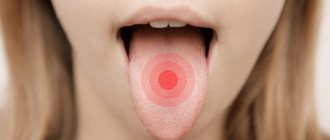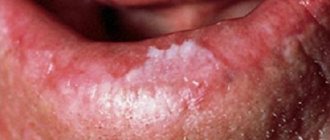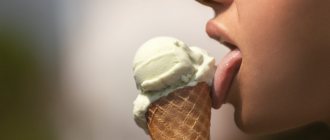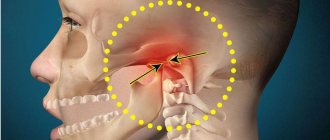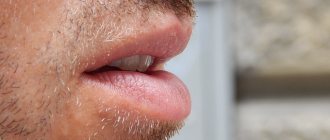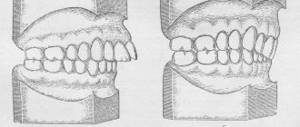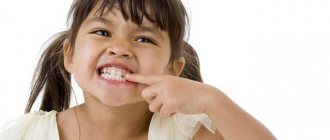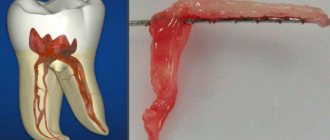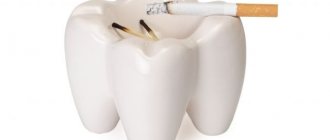3297
Full chewing and speech abilities are partly ensured by the normal development of the mandibular joint. It is he, due to his mobility, that allows him to carefully crush food and communicate freely through the speech function.
But when a pathological process starts in its structure (overload of the joint, violation of the integrity of the joint capsule, infection, etc.), undesirable consequences arise - the jaw clicks when chewing.
A little about anatomy
The lower jaw is the only movable element among all the bones of the skull. It is the mobility of this horseshoe-shaped bone that provides a person with the ability to open his mouth, chew food and speak clearly. The smooth functioning of the jaw directly depends on the condition of the temporomandibular joint: it is this structure that helps the mouth open wide. Normally, this joint operates silently.
However, sometimes people can o) when opening their mouth. This sound often appears on one side, and less often on both sides. Clicking in the jaw is not necessarily painful or unpleasant: sometimes the patient has no other complaints. This click is created when there is pathology in the functioning of the mandibular joint, when the head of the bone partially comes out of the joint capsule and then returns to its place. Displacement of the mandibular joint can occur in the up-down or left-right direction.
In traumatology, this condition is already considered subluxation or complete dislocation of the lower jaw joint.
Many people simply do not pay attention to clicks when moving the lower jaw, if there is no pain. However, such a symptom already indicates problems in the temporomandibular joint. And this symptomatology may be complicated by the fact that one day such a “clicker” simply will not be able to close his mouth.
Therefore, a click in the jaw during various movements (chewing, trying to open the mouth, talking, etc.) should force the patient to immediately seek medical advice.
What to do - which doctor and when to contact if your jaw is jammed?
It is simple to determine dysfunction of the mandibular joint: there is pain in the cheekbones, which can spread to the teeth, temples and cheeks, or the mouth does not open completely, sometimes you have to look for the correct position of the head, it hurts to close your teeth or you have to chew on one side. In the early stages, a characteristic click appears during joint movement.
When all the symptoms are present, you need to go to a dental surgeon. If there is no such specialist, you can go to a simple dentist or surgeon. They will try to set the jaw back and find out the reasons for its pinching, but if they don’t succeed, they will send you to a specialist.
Why does my jaw click when chewing?
In medicine, the lower jaw is usually called the term “TMJ” based on the type of joint (temporomandibular joint). Problems with this joint can appear not only in old age, but also in young people, as well as in children. For what reasons can a click in the jaw occur?
Most often, the “push” factors in this case can be:
- malocclusion (for example, mesial);
- jaw injuries;
- professional vocal stress (usually after long performances, filming, oratorical battles), more often in children and adolescents;
- unqualified treatment by a dentist (especially prosthetics) with subsequent uneven distribution of chewing load, asymmetry and displacement of discs;
- long-term caries;
- bruxism (uncontrollable grinding of teeth during sleep) and its negative consequences for the jaws;
- purulent-inflammatory diseases of the lower jaw and the appearance of arthritis (usually due to otitis, sore throat, rheumatism, tuberculosis, purulent mumps, osteomyelitis of the jaw, etc.);
- displacement of the articular head after sudden tension of the facial muscles (usually after chewing solid food, stress, severe physical activity).
When faced with jaw clicking when chewing or opening your mouth, people have different ways of calming themselves down. At the same time, you can often hear the opinion that there is nothing wrong with a jaw crunch, since other joints in the body can also crack: knees, shoulders, wrists, etc. However, it is dangerous to take problems in the TMJ lightly.
How do clicks in the jaw appear?
The patient must be prepared that when contacting a doctor, he will be asked questions that will help to more clearly define the clinical picture. At the same time, dentists, for example, have a whole classification for jaw clicking.
Doctors distinguish such manifestations depending on the intensity of the clicks, their multiplicity and the position of the mouth. Such “clacks” can sound in the form of crunching, creaking, clicking and are divided into those that are heard only by the patient or by others. They can be multiple or single
Often the jaw clicks as a result of stretching or compression of the cartilage in the joint area, as a result of which the jaw ligaments are stretched. In many ways, clicks in the jaw depend on the position of the cartilage disc in the joint.
The most common cause of a clicking jaw is jaw arthritis. At the same time, degenerative processes occur in the cartilage disc, associated with the simultaneous thinning of the cartilage disc and looseness of the fibers with the formation of defects in the joint itself. Clicking in the jaw occurs with this pathology due to mechanical friction of the bone against an obstacle and slipping.
Diagnostics
Most patients do not see a doctor for a long time when their jaw is clicking.
Often, patients turn to doctors for treatment of TMJ already in an advanced stage, when it is difficult to correctly determine the root cause of this condition. For many people, the reason for visiting a doctor lies not in the click in the jaw itself, but in persistent pain.
When diagnosing jaw clicks and their causes, a medical specialist must interview the patient. In addition, palpation of the lower jaw and mandibular joint is used to determine the type of bite. Often such patients require a neurological examination and examination of the condition of the trigeminal nerve.
For a more accurate diagnosis of this pathology, the following methods are often used:
- blood and urine tests to exclude inflammation;
- radiography;
- Ultrasound;
- facial electromyography;
- arthroscopy.
- CT;
- MRI.
Preventive measures
The main preventive measure against the development of TMJ diseases is careful attention to the condition of the body as a whole.
Regarding the prevention of clicking in the jaw, experts recommend the following:
- treat dental diseases at the initial stages of their development;
- removed or damaged teeth should be immediately replaced with artificial analogues;
- After receiving an injury, immediately consult a doctor;
- treat ear, nose and throat diseases in a timely manner;
- Do not eat too hard and hard foods.
These simple tips will help you maintain healthy jaw joints for life.
The video provides additional information on the topic of the article.
When crunching is not dangerous
Occasionally, any person may experience a crunch or a slight click in the mandibular joint. If this happens rarely and there are no problems with the joint, then this phenomenon is often completely physiological. In this way, the joints of the upper and lower jaws signal their work at the point of their connection.
Clicking should be alarming if reddened skin over the joint, as well as inflammation or pain when moving in it, are simultaneously noted. If you have similar symptoms, a visit to the doctor is required.
We can fully explain the crunching sound when opening the mouth in people with increased load on the mandibular joint. This phenomenon can occur in teachers, actors, lawyers, politicians, etc. The reason for this crunching sound lies in the increased stretching of the protein component in the form of fibrinogen.
Constant overwork of the speech apparatus can worsen blood circulation in the joint, so to combat this phenomenon it is necessary to reduce the load on the joint.
What you can do at home
Eliminating the symptoms of the disease at home can only temporarily improve the patient’s condition. For timely diagnosis, it is advisable not to delay visiting a doctor.
In situations where clicking or pain occurs unexpectedly, you can reduce the severity of the disease and improve your overall well-being with the help of traditional medicine:
- Cold . A cloth is moistened with cold water and applied to the painful area for 10 minutes. After an hour, the procedure is repeated until relief occurs. The compress is effective for inflammatory processes in the joint.
- Warm . Hot water is poured into a bottle-type container. The container is wrapped in cloth to avoid burns and applied to the joint. The procedure reduces muscle tension due to arthrosis.
- Medicinal herbs . Decoctions of fennel, calendula, oregano or burdock help relieve inflammation and reduce pain.
To reduce the chewing load, it is recommended to temporarily abandon hard and rough foods and give preference to soft foods. Opening your mouth wide is also extremely undesirable.
Possible complications
The main complication of advanced TMJ, accompanied by a click in the jaw, can be pathologies in the form of:
- jaw degenerative changes with persistent pain syndrome;
- the need for surgical treatment of a destroyed joint and its plastic surgery;
- the appearance of tumors against the background of long-term inflammation;
- jamming of the joint with the inability to close/open the mouth;
- neurotic disorders.
Clicking in the lower jaw can occur for some time without pain. However, a long course of arthrosis leads to deformities, pain of varying strength and intensity, and sometimes to complete jamming of the jaw joint.
Jamming most often occurs at the moment of wide opening of the mouth (at the time of yawning, chewing, screaming, etc.) In this case, the person cannot close his mouth. It is especially unpleasant that more often the jaw is fixed in the maximum open position. It is not difficult to imagine how much trouble such a situation can bring.
Another complication of jaw clicking when chewing is neurotic manifestations. Chronic “clattering” leads to mood swings, deterioration of sleep, and irritability in the patient.
Why the mouth does not open - reasons
Usually a person in such cases cannot open his mouth or opens it a little.
The reason for this phenomenon can be various factors:
- prosthetics or dental treatment, for example, after wisdom tooth removal;
- injuries to the face and neck, chewing rough food;
- malocclusion;
- structural features of the dentition and joint;
- bruxism.
More often, the causes are mechanical in nature due to injury or excessive work of the jaw, for example, when opening a bottle with the teeth, yawning or increased speech load. But psychogenic factors, such as constant stress and emotional overstrain, can also provoke pathology.
Women suffer from this problem more often, since their ligamentous apparatus is less developed. As a result, sometimes opening your mouth wide enough when yawning causes your jaw to jam.
In men, this happens more often due to various injuries and diseases: polyarthritis, rheumatism, gout. They lead to weakening of the ligamentous apparatus and to the fact that the joint sometimes jams.
Treatment options
The main condition for an effective treatment of the pathology of the mandibular joint is the correct identification of the causes of this disease.
For different causes of clicking of the lower jaw, treatment may be completely different. Let's consider the basic principles of treatment for jaw diseases with the clicking symptom.
For arthritis
Treatment of inflammation of the jaw is largely related to its type (catarrhal or purulent) and the stage of neglect of this process. Suppurative arthritis requires surgical intervention to ensure the drainage of pus. A sling cast or dental plate is often used. In parallel, drug therapy is used to relieve inflammation and improve joint mobility.
After the process subsides, physiotherapy and exercise therapy are usually used.
For dysfunction of the mandibular joint
Dysfunction of the lower jaw joint occurs after injuries, infections, stress, and endocrine disorders. Moreover, in addition to the clicking symptom, patients usually complain of chronic headaches or aching pain in the ear and back of the head. In this case, drug treatment (anti-inflammatory drugs, tranquilizers, muscle relaxants) and orthopedic structures (splints, plates, mouth guards) are used. In the advanced phase of the disease, surgery is used.
For dental problems
Most often, pathologies in the mandibular joint area are treated by a dentist.
If a patient has malocclusion, the clicking may disappear only after this dental pathology is corrected. Dental care is also necessary for “clattering” due to dental errors or advanced caries. In this case, repeated prosthetics or dental fillings are necessary.
Conservative therapy for inflammation of the lower jaw joint is complemented by physiotherapeutic procedures. The following methods can be used:
- laser therapy;
- magnetic therapy;
- electrophoresis;
- ultrasound
For this jaw pathology, physical therapy is successfully used. The main condition for this method should be the absence of pain. Often, before gymnastics, a warm compress is used to increase blood flow and facilitate movements in the jaw.
In the exercise therapy complex for TMJ, exercises are used to relax the jaw muscles in the form of pushing the lower jaw forward, shifting it to the right and left, forward movements in various directions with fixation with the hand to increase the strength of muscle contractions.
Exercise therapy for diseases of the jaw helps to learn how to relax the jaw muscles, eliminating the cause of the click.
Surgery
In advanced cases of TMJ and its complications, surgical treatment must be used. Methods for this problem often use techniques:
- A minimally invasive method, when special solutions are injected intra-articularly under local anesthesia. At the same time, the affected cells are removed and the cartilage tissue is smoothed, allowing the normal production of joint fluid to be restored.
- The arthroscopy method, during which miniature instruments (probe, scissors or scalpel) are used to remove adhesions and scar formations in the affected area.
- Open surgery method. Often this is a forced treatment method for serious injuries in the mandibular joint, when there are advanced degenerative changes, growths or tumors. With such interventions, an incision is made behind the ear and the affected joint is exposed. Deformed areas are removed during open operations.
- Method of surgical prosthetics. Surgical repair is usually performed after open surgery to replace the articular head of the affected joint.
Prevention
No one is immune from the occurrence of inflammation in the area of the lower jaw joint. However, annual dental examinations and timely treatment of identified pathologies play an important role in the prevention of TMJ: treatment of caries, correction of malocclusion, timely prosthetics.
Don’t think that clicking or crunching in the jaw will go away on its own. It has been proven that in most cases they will not work. You also cannot tolerate the resulting pain in the jaw and relieve it yourself with painkillers or lotions. These home methods will only give a temporary effect, and continued inflammation in the joint will only lead to complications and aggravation of the situation.
Sources used:
- Practical guide to the outpatient section of surgical dentistry / E.Ya. Gubaidullina and others - M.: Medical Information Agency
- Emergencies in dentistry and maxillofacial surgery. Fishchev S.B. / S.B. Fishchev. - Moscow
- Combined dentofacial anomalies and deformities / A.R. Andreischev. — M.: GEOTAR-Media
- Official website of the Russian Dental Association


